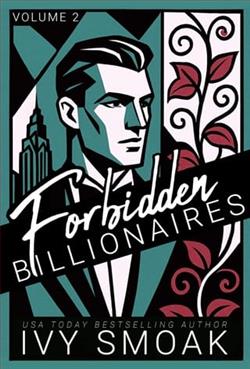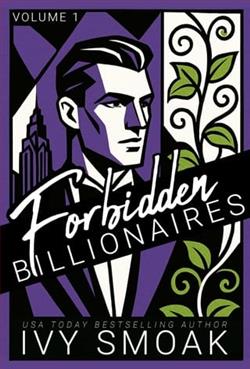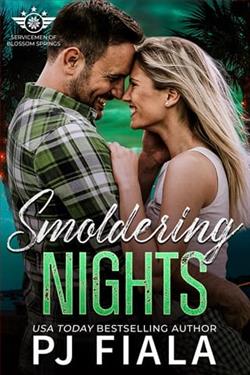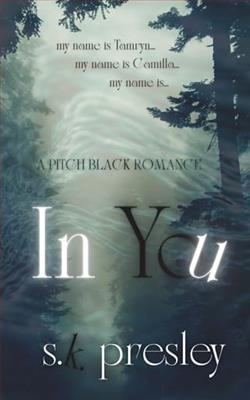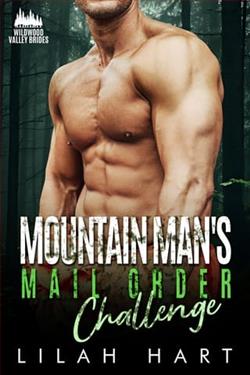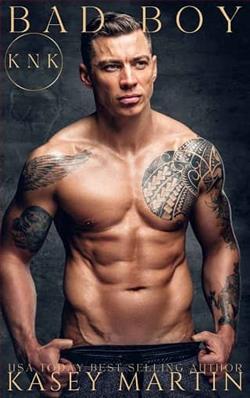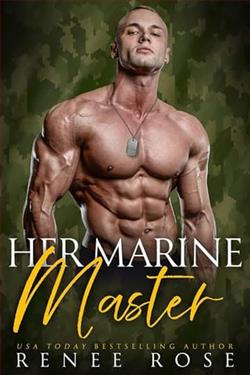Page 15 of So Far Gone
Of course, he would be gone one day, too, soon enough, like his grandfather and his father and his brother before him. Everything he did would exist only in the minds of people who recalled him. He would cease being flesh and blood, or even a book in someone’s basement, as he had realized back at his house—and would be a fading memory for the few living souls who recalled him, and not nearly as warmly or vividly as the way his grandkids remembered their grandma Celia, gone now to the loopy Unitarian heaven she longed for. Or, if Kinnick was right, gone back to the earth and the simple elements that had made her. Or, if Shane was right, burning in an eternal hell-pit beneath the hooves of a dancing goat-demon for not choosing the right church, for not speaking in tongues, for not voting the right way.Oh Celia.
“They’re nice,” Leah said. “Joanie and Brian.”
“Hmm?” Rhys turned. “Yes. Yes. Joanie and Brian, theyarenice.”
“Did you love her?” Leah asked.
This girl. Cutting right to it every time, the way she used to when he would come home from work and Bethany would—Kinnick laughed, realizing that he was doing it again, conflating his granddaughter with his daughter, looking at Leah and flashing back twenty-five years. Jesus. If Shithead Shane hurt a single hair on Bethany’s head... Kinnick tried not to think about this worst possibility.
Leah was still staring at him from the passenger seat, waiting for an answer. In the rearview mirror he could see Asher, too, looking up from the chess notations he’d been writing in the notebook Rhys had given him.
“Did I love Joanie?” Rhys screwed up his mouth. “No, in hindsight, I don’t think I did. Certainly, not the way I loved your grandmother.”Or Lucy, he thought. “But I liked her a lot.”
“How do you know when it’s really love?” Leah asked, more quietly this time.
“Well. I’m not sure I know the answer to that. At first, I guess, it’s just a feeling. That you really want to be with that person. You think about them all the time.” He thought of Lucy again. “And maybe, if it’s the real thing, you start to want their happiness more than your own.” Kinnick looked over at his granddaughter, wondering if this wasn’t more than a passing concern of hers. “It can be confusing, huh?”
Asher chimed in from the backseat: “Mom says that alcohol makes people do funny things.”
Rhys laughed. “It does. Loneliness does, too.” He touched the back of his neck again, remembering the feeling of Joanie’s hands there. That was how he’d met her. She used to cut hair out of the shop next to their trailer and it was Brian who suggested Rhys go to “my old lady” for trims in the first place, and something about her floating above him, the feeling of her hands on his shoulders, fingers running through his hair—the care she took with him. Undoubtedly, he’d confused haircuts with real intimacy, which he’d mostly forsaken when he’d moved up to the woods. And this was what he considered the lowest point of his life as a recluse, when he’d gotten so rusty at human interaction that he felt like he’d lost the ability to communicate. He’d pushed his loneliness aside and convinced himself he didn’t need people, but of course, once he started thinking of Joanie that way, it was as if he would die if he didn’t saysomething. Add to those feelings two bottles of a flat, oaky red wine on Brian’s old fishing boat, and he’d drunkenly convinced himself it was somehow a question of his integrity, and he’d chosen to tell Brian what he’d told Joanie. “Integrity,” he said aloud, and scoffed at himself.
Leah glanced over again.
“Sorry. I keep thinking aloud.”
He drove them through the community of Tum-Tum, tracing theSpokane River upstream toward the city. It was as if they were moving back in time, traveling the path Brian called the Tiny Trail of Tears. It was only fifty miles from Spokane’s series of waterfalls—a fish vending machine in the centuries before the river was dammed and the salmon stopped coming this far upstream—to the remote place where Brian’s tribe had been exiled in 1881, the Spokane Indian Reservation, a starkly beautiful, dry-forested, uranium-rich, radon-sick landscape almost forty miles northwest of the farthest edge of Washington’s second-biggest city.
Rhys had first met Brian and Joanie when he’d written a newspaper story about the cause they’d taken up, pressuring the US Department of Energy and the state Department of Ecology to clean up the old Midnite Mine, where three million tons of uranium had been scraped out of tenuous reservation ground, shipped 160 miles south to Hanford, enriched, refined, and used to test Cold War atomic bombs on various islands and sea floors, and in outer space. In 1981, exactly a hundred years after the tribe had been relocated to this place, the open pit mine was played out and abandoned, its tailings left to leach into the creeks and groundwater that laced the Spokane Reservation. Rhys had written stories about the toxic sludge and the open pit, about the high rates of cancer and multiple sclerosis among people who lived near the mine, but proving causality in environmental diseases was nearly impossible, and as with much of his journalism career, Rhys had accepted that the stories he’d written had changed nothing.
He drove his rattly old car south and east and downhill, descending first into Spokane’s suburbs: newer, balconied twenty-first-century apartments and obscene McMansions giving way at the city limits to twentieth-century split-levels, ranchers, and bungalows, to strip malls and shopping centers, and, as they neared downtown, to late-nineteenth-century craftsman and Victorian homes, miners and loggers shacks, and the brick apartment buildings of a once-thriving extractionmetropolis. It was there, however, that the time machine ended. Pointedly, Kinnick thought, they would not encounter renovated tepees, dugouts, or lodges.
He tried to recall when he’d last been to the city. Two and a half years? Yes. The aching tooth. A trip to the dentist. A lot of things you could patch together in smaller towns—the grocery runs in Springdale, books in Chewelah vintage stores, the occasional beer at the Loon Lake Tavern—but sometimes you needed a big city, such as when you required a root canal.
Thoreau was only twenty-seven when he went to live in a ten-by-fifteen-foot cabin on Walden Pond for two years and two months of spiritual reflection and dental decay. By the time he was thirty-three, old Henry David had no original teeth left. Not so for Kinnick, who had outlasted Thoreau’s exile by five years, and who hit sixty with his own choppers intact, thanks to Spokane’s dental wizardry.
Then, after that root canal, he had bid big-city civilization farewell again.
“And now, he’s back,” Kinnick said.
“What’s that?” Leah asked.
“Nothing,” Kinnick said.
The chess tournament, according to Mrs. Gaines, was being held at an old abbey in West Central Spokane, the city’s oldest working-class neighborhood. The Spokane Chess Club met in this nineteenth-century Episcopal Church, a barn-red steepled building with an abbot’s house attached. A sign out front read:we cultivate justice, joy, compassion, and peace.
There were only four cars in the gravel parking lot, a few more on the street. Rhys parked and turned back to consider his grandson. “You ready to go get ’em, Kasparov?”
Asher looked up from his notebook, suddenly seeming panicked. “I have to pee.”
“I’m sure there’s a bathroom in there.”
“I hope so!” He was squirming. Hadn’t he gone in Rhys’s outhouse? And again at Brian and Joanie’s? The boy must have a dime-size bladder.
“Try to relax, Asher,” Leah said. She looked at Rhys and raised her eyebrows.
“I just want to say, I’m really glad you two came to my house today,” Kinnick said, surprising himself a little. “And I’m sorry I was away for so long. I haven’t been a very good grandpa or a very good father to your mom. But I’m hoping to change all that.” He patted Asher’s leg. “Now let’s get you to the bathroom before you Ruy-Lopez your pants.”
They got out of the car. Across the parking lot, Rhys noticed two men descending either side of a tall black Ram pickup truck. Something about the men didn’t scream chess to Rhys. They were round in the chest and belly, wearing black T-shirts covered by matching nylon bomber jackets. One was probably thirty, with a goatee and short, military-cut hair. The other was older, clean-shaven and bald, his head so shiny as to be metallic. It was this older, bald one who seemed vaguely threatening, and oddly familiar to Kinnick, although he couldn’t quite place the man.








